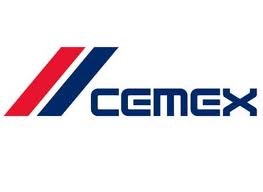The low growth in the U.S. economy has been hitting the balance sheets of cement companies for the past five years. This industry is highly correlated to mid- and long-term construction investment levels, which were severely damaged with the credit crunch and housing crisis. Currently, income and gains are modest for this sector, but the incipient recovery for home builders could begin to improve the industry’s performance.
I will analyze three cement companies to see how they are positioned to realize future growth.
The cement giant still weak
Currently, the company is experiencing weak demand for cement and concrete mainly in Europe, where 27% of its revenue is generated. In spite of the little growth in U.S. sales, its first-quarter results still show weak profits. The company posted a loss of $265.3 million, a lot wider than the $29.9 million loss experienced in the first quarter of 2012. Net margin was -8%, a tenuous performance compared to the rest of the cement industry, which is at 3%, and to its own historical performance.
In 2007 the company acquired the Australian cement company Rinker Group, which operates in Australia, China and the states of Florida and Arizona under the name “Florida Materials”. To complete this acquisition, Cemex SAB de CV (ADR) (NYSE:CX) took on a large amount of debt, and had to sell some attractive assets that could affect its competitive position.
Unfortunately, after the acquisition, the downfall in the construction activity put the company in a unhealthy financial situation. Its cash-to-debt ratio is slightly less than 0.1, much lower than the rest of the industry (0.5). This means that the company could not hold another long recession without refinancing its debt.

The company is executing a steady expansion initiative and investing in modernizing plants to lower costs. In March, Texas Industries, Inc. (NYSE:TXI) announced the expansion of its shale and clay aggregates manufacturing business, providing materials to the energy and construction sectors. Texas Industries, Inc. (NYSE:TXI) recently finalized the construction of a new kiln at its main plant in Texas, which increased its production capacity by 1.4 million tons.
The company managed to triple its capacity in the past 15 years, going from 2 million tons to 6 million tons in year-to-date.
However, the company’s balance sheet is not yet showing much optimism. Results for the first quarter of 2013 posted a net loss of $5.8 million, which improved compared to the prior-year’s net loss of $24.3 million but is still a factor of concern. Texas Industries, Inc. (NYSE:TXI)’ $650 million debt load still remains a problem, especially when the company keeps losing money. Its cash-to-debt ratio is 0.1, lower than the the industry average, so the company will face tougher times if construction does not pick up soon.
Improving performance
With 40 facilities across the U.S., Eagle Materials, Inc. (NYSE:EXP) is involved in the manufacturing and distribution of aggregates and the cement business, gypsum wallboard, and recycled paperboard. Demand of its products is driven by new home construction, especially the gypsum wallboard, which is manufactured by the company in five different plants. Gypsum is experiencing robust demand, with a price increase of 23% in the last quarter. This should boost profits.
The company is experiencing higher performance than the industry average. Its revenue increased 37% in the first quarter year-over-year, when most companies are losing money. Operating margin is 12.2% against 4.3% for the industry, which is a very good sign. Moreover, its earnings margin has been solid over the trailing- 12 months, a good trend to consider.
The company’s current debt load is at $489.3 million. This level is not something to worry about, since its debt/cap ratio remains at 41%, quite lower than its peers. Hence, I see Eagle Materials, Inc. (NYSE:EXP) as the best performer within these three companies.
Bottom line
If the U.S. housing market and demand for construction materials continue to grow at a steady pace, all of these companies will improve their results. Since this recovery is expected to continue, we might see nicer earnings results coming in. My take is that Eagle Materials, Inc. (NYSE:EXP) is positioned to realize better performance than Cemex SAB de CV (ADR) (NYSE:CX) and Texas Industries, Inc. (NYSE:TXI). This company has surfed the crisis in relatively good shape. Plus, its tighter relation to the housing construction sector gives it a better potential in case demand for construction aggregates improve.
Regarding Cemex SAB de CV (ADR) (NYSE:CX) and Texas Industries, Inc. (NYSE:TXI), I see two problems. First, their current loss is taking place in a period when other construction-related companies have returned to profitability. Second, these companies made big investments before the housing crisis in 2007 and 2008. This increased their capacity, but the generated debt will keep impacting negatively on their balance sheets in the next quarters.
For Cemex SAB de CV (ADR) (NYSE:CX), the perspective is even worse. The U.S. housing market recovery could boost its profitability, but the recession in Europe and its severe drop in demand will still bring problems in sales and profits.
The article 3 Cement Companies to Consider in a Recovery originally appeared on Fool.com is written by Louie Grint.
Louie Grint has no position in any stocks mentioned. The Motley Fool has no position in any of the stocks mentioned. Louie is a member of The Motley Fool Blog Network — entries represent the personal opinion of the blogger and are not formally edited.
Copyright © 1995 – 2013 The Motley Fool, LLC. All rights reserved. The Motley Fool has a disclosure policy.




